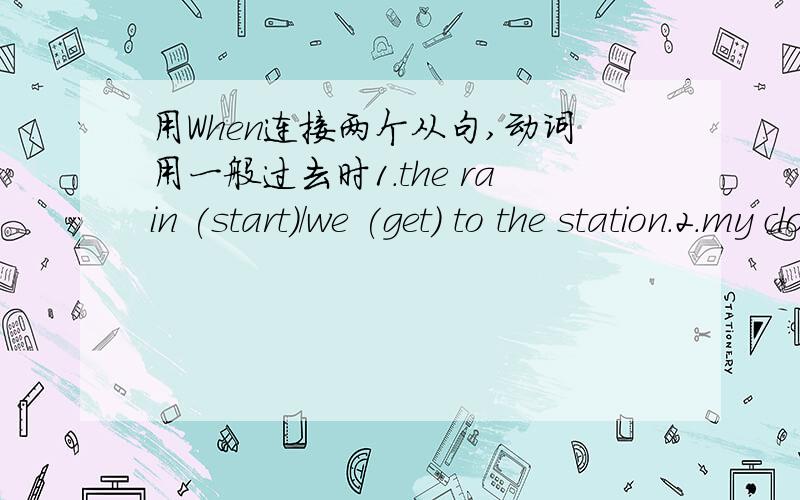用When连接两个从句,动词用一般过去时1.the rain (start)/we (get) to the station.2.my clothes (get) wet/ it (rain)3.the birds (become) afrid / the big dog (bark)4.we (be) on holiday ,/ we (take) a lot of photos 5.they (be) just ready to d
来源:学生作业帮助网 编辑:作业帮 时间:2024/04/29 12:27:05

用When连接两个从句,动词用一般过去时1.the rain (start)/we (get) to the station.2.my clothes (get) wet/ it (rain)3.the birds (become) afrid / the big dog (bark)4.we (be) on holiday ,/ we (take) a lot of photos 5.they (be) just ready to d
用When连接两个从句,动词用一般过去时
1.the rain (start)/we (get) to the station.
2.my clothes (get) wet/ it (rain)
3.the birds (become) afrid / the big dog (bark)
4.we (be) on holiday ,/ we (take) a lot of photos
5.they (be) just ready to drive to the park,/their friends (arrive)
6.the boy (push) him./he (trip) and (fall)
用When连接两个从句,动词用一般过去时1.the rain (start)/we (get) to the station.2.my clothes (get) wet/ it (rain)3.the birds (become) afrid / the big dog (bark)4.we (be) on holiday ,/ we (take) a lot of photos 5.they (be) just ready to d
when the rain started,we got to the station.
my clothes got wet when it was raining.
the birds became afrid when the big dog was barking.
we were on holiday when we took a lot of photos.
they were just ready to drive to the park when they friends arrived.
the boy pushed him when he tripped and fell.